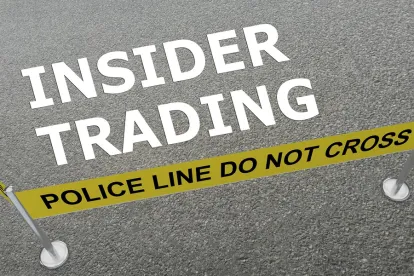SEC’s Increased Focus on Insider Trading
On March 23, 2017, a New York federal judge granted a temporary asset freeze against the assets of a Hong Kong private equity investor, Shaohua “Michael” Yin, who the SEC accused of making $29 million by trading on insider information about Comcast’s purchase of DreamWorks Animation.
According to the SEC’s complaint, filed on February 10, 2017, Yin used brokerage accounts under other people’s names to buy $56 million of DreamWorks stock (2.15 million shares) at a weighted average price of $26.25 per share. Shortly thereafter, Comcast and DreamWorks jointly announced that Comcast would acquire DreamWorks at a price of $41 per share. Predictably, DreamWorks stock skyrocketed 47.3% after the announcement, from $27.12 per share to $39.95 per share. In all, Yin’s brokerage accounts realized more than $29 million in profits from their trading at DreamWorks.
Investors should rest assured, however, that insider trading schemes do not pay off as the SEC frequently detects (or is tipped off about) the trades. According the SEC Whistleblower Program’s 2016 Annual Report to Congress, the fourth most common tip submitted to the SEC concerns insider trading violations. And based on the early success of this program, investors should certainly think twice before trading on inside information.
SEC Whistleblower Program
Under the SEC Whistleblower Program, whistleblowers may be eligible for monetary awards when they voluntarily provide the SEC with original information about violations of federal securities laws, including insider trading. Whistleblowers are eligible to receive between 10% and 30% of the monetary sanctions collected if their tip leads to a successful enforcement action resulting in monetary sanctions exceeding $1,000,000.
The SEC Whistleblower Program also protects the confidentiality of whistleblowers and does not disclose information that might directly or indirectly reveal a whistleblower’s identity. In fact, whistleblowers can even submit a tip anonymously if represented by counsel.
Since the law went into effect, the SEC Whistleblower Office has awarded more than $149 million to 41 whistleblowers. The largest award to date is more than $30 million. In 2016, the office issued more than $57 million in awards to whistleblowers.
Whistleblower Tips to the SEC About Insider Trading
Under federal securities laws, individuals are liable for insider-trading violations when they buy or sell a security in breach of a fiduciary duty or other relationship of trust and confidence, while in possession of material, nonpublic information about the security. A “relationship of trust and confidence” may exist in many circumstances, as highlighted in SEC Rule 10b5-2. Information is considered “material” if it would be important to a reasonable investor in making an investment decision.
In addition, insider-trading violations may occur when an individual:
-
tips material, nonpublic information;
-
trades securities based on tipped information; or
-
trades securities based on misappropriated information.
Recently, the Supreme Court has lowered the bar for prosecuting individuals who trade on inside information from family or friends. In Salman v. United States, the Supreme Court held that government prosecutors are not required to show that money, property, or something of tangible value was provided in exchange for insider information from relatives or friends. The Court reasoned that “[i]n these situations, the tipper personally benefits because giving a gift of trading information to a [relative or friend] is the same thing as trading by the tipper followed by a gift of the proceeds.”
Insider-trading laws are designed to protect market integrity and prevent individuals from profiting unlawfully. Prosecuting insider-trading violations is a top enforcement priority of the SEC.
Examples of Insider Trading Cases Bought by the SEC
According to the SEC’s Insider Trading webpage, the agency has brought insider-trading cases against:
-
corporate officers, directors, and employees who traded the corporation’s securities after learning of significant, confidential corporate developments;
-
friends, business associates, family members, and other ‘tippees’ of such officers, directors, and employees, who traded the securities after receiving such information;
-
employees of law, banking, brokerage and printing firms who were given such information to provide services to the corporation whose securities they traded;
-
government employees who learned of such information because of their employment by the government; and
-
other persons who misappropriated, and took advantage of, confidential information from their employers.
SEC Insider Trading Enforcement Actions
In another recent enforcement action, on March 23, 2017, the SEC announced that it settled charges against Steven A. Hartung who allegedly earned $60,000 on a family member’s inside information about Merck & Co. Inc.’s 2014 acquisition of Idenix Pharmaceuticals. The SEC disgorged his gains and Hartung agreed to pay an equivalent penalty and interest for a total settlement of $123,000.
While this settlement amount would not qualify a whistleblower for an award, it nevertheless underscores that the SEC is targeting any individual who trades on inside information – even if it does not result in a multi-million-dollar profit.
In a separate enforcement action, hedge-fund manager Leon G. Cooperman and his firm, Omega Advisors, were charged with insider trading for purchasing securities based on material, nonpublic information. According to the SEC’s complaint, Cooperman learned of Atlas Pipeline Partners’ (“APL”) sale of its natural-gas processing facility from the company’s executive in advance of the public announcement. During this conversation, Cooperman allegedly told the executive that he would not to use the information for trading purposes. Thereafter, the hedge-fund manager purchased a substantial amount of APL’s stock, whose value increased by about 31% after the sale of the gas-processing facility.
On September 21, 2016, the SEC announced charges against Cooperman and Omega Advisors. In the complaint, the SEC seeks disgorgement of all ill-gotten gains plus interest, penalties, and permanent injunctions against Cooperman and Omega Advisors, as well as an officer-and-director bar against Cooperman.




 />i
/>i

